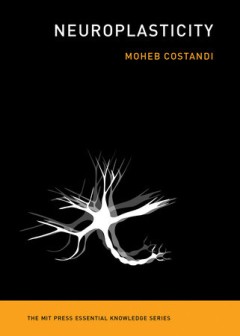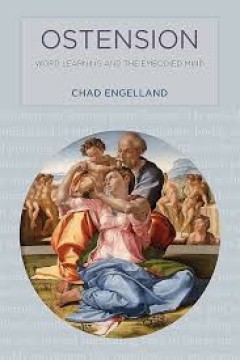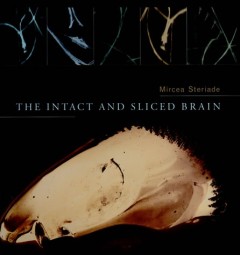Filter by

Advancement and New Understanding in Brain Injury
This book covers the latest developments in the understanding and treatment of traumatic brain injury. Various world experts authored the chapters that comprise a wealth of updated information on intracranial pressure; monitoring and diagnostic methods; neuroinflammatory responses in traumatic brain injury; cerebral palsy and Covid-19-related brain disorder; pathogenesis and prevention of fetal…
- Edition
- -
- ISBN/ISSN
- 9781838819330
- Collation
- 216 hlm; ill., lamp.,
- Series Title
- -
- Call Number
- -

Advanced Topics in Neurological Disorders
This book presents recent advances in the field of Neurological disorders research. It consists of 9 chapters encompassing a wide range of areas including bioengineering, stem cell transplantation, gene therapy, proteomic analysis, alternative treatment and neuropsychiatry analysis. It highlights the development of multiple discipline approaches in neurological researches. The book brings toget…
- Edition
- -
- ISBN/ISSN
- 9789535169024
- Collation
- 256 hlm; ill., lamp.,
- Series Title
- -
- Call Number
- -

Neuroplasticity
The real story of how our brains and nervous systems change throughout our lifetimes -- with or without ""brain training."""Fifty years ago, neuroscientists thought that a mature brain was fixed like a fly in amber, unable to change. Today, we know that our brains and nervous systems change throughout our lifetimes. This concept of neuroplasticity has captured the imagination of a public eager …
- Edition
- -
- ISBN/ISSN
- 9780262337069
- Collation
- 1 online resource (x, 181 pages).
- Series Title
- -
- Call Number
- -

Fatigue as a window to the brain
"A Bradford book."AnnotationOCLC-licensed vendor bibliographic record.
- Edition
- -
- ISBN/ISSN
- 9780262271448
- Collation
- 1 online resource (xx, 336 pages) :illustrations.
- Series Title
- -
- Call Number
- -

Ostension: Word Learning and the Embodied Mind
"Ostension is bodily movement that manifests our engagement with things, whether we wish it to or not. Gestures, glances, facial expressions: all betray our interest in something. Ostension enables our first word learning, providing infants with a prelinguistic way to grasp the meaning of words. Ostension is philosophically puzzling; it cuts across domains seemingly unbridgeable--public--privat…
- Edition
- -
- ISBN/ISSN
- 9780262320610
- Collation
- 1 online resource (xxix, 305 pages)
- Series Title
- -
- Call Number
- -

The intact and sliced brain
"A Bradford book."In this book Mircea Steriade cautions against the tendency of some neuroscientists to infer global brain functions such as arousal and sleep, epileptic events, and even conscious thinking from the properties of single cells. Based on his lifetime of research on intact brains, Steriade emphasizes the need to understand isolated networks within the context of the whole mammalian…
- Edition
- -
- ISBN/ISSN
- 9780262284318
- Collation
- 1 online resource (xi, 366 pages, 12 unnumbered pages of plates) : illustrations (some color)
- Series Title
- -
- Call Number
- -

The brain in motion :from microcircuits to global brain function
"A complete and authoritative of the neural control of movement in animals ranging from lampreys to humans, including the roles of the cortex and basal ganglia, and will also cover motor disorders"--OCLC-licensed vendor bibliographic record.
- Edition
- -
- ISBN/ISSN
- 9780262375306
- Collation
- 1 online resource
- Series Title
- -
- Call Number
- -

Microcircuits :the interface between neurons and global brain function
"Report of the 93rd Dahlem Workshop on Microcircuits: the interface between neurons and global brain function, Berlin, April 25-30, 2004"--Page [ii].AnnotationOCLC-licensed vendor bibliographic record.
- Edition
- -
- ISBN/ISSN
- 9780262274326
- Collation
- 1 online resource (xiv, 455 pages) :illustrations (some color).
- Series Title
- -
- Call Number
- -

Testing Knowledge: Toward an Ecology of Diagnosis, Preceded by the Dingdingdo…
"This volume presents the collective adventure of Dingdingdong, the Institute for the Co-production of Knowledge about Huntington’s Disease, founded in 2012 between Paris and Brussels. Katrin Solhdju’s Testing Knowledge: Toward an Ecology of Diagnosis pursues the question of taming the violence of the new species of medical foreknowledge represented by genetic testing. Adopting historical a…
- Edition
- Ed. 1
- ISBN/ISSN
- 9781953035455, 9781953035462
- Collation
- 194
- Series Title
- -
- Call Number
- 616.8 SOL t

Magnesium in the Central Nervous System
Our understanding of the physiology and biochemistry of the brain has improved dramatically in the last two decades. In particular, the critical role of cations, including magnesium, has become evident, even if incompletely understood at a mechanistic level. The exact role and regulation of magnesium in particular remains elusive, largely because intracelluar levls are so difficult to routinely…
- Edition
- Ed. 1
- ISBN/ISSN
- 9780987073051
- Collation
- 356
- Series Title
- -
- Call Number
- 616.8 MAG m
 Computer Science, Information & General Works
Computer Science, Information & General Works  Philosophy & Psychology
Philosophy & Psychology  Religion
Religion  Social Sciences
Social Sciences  Language
Language  Pure Science
Pure Science  Applied Sciences
Applied Sciences  Art & Recreation
Art & Recreation  Literature
Literature  History & Geography
History & Geography